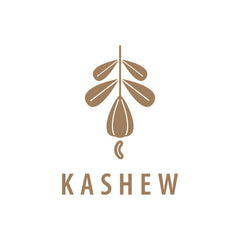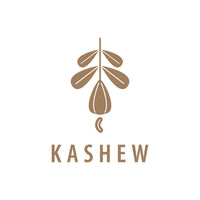A Delicious Path to a Greener Future
How Kashew Champions Sustainability—From Ingredients to Packaging
At Kashew, sustainability is not a marketing slogan—it’s a mindset that informs how we work, what we source, and the choices we make every day. From using organic, locally grown ingredients to choosing materials that are kinder to the planet, we’re constantly adjusting our operations to move toward a more responsible food system. It’s not about being perfect—it’s about being thoughtful.

Rooted in Vietnam, Grown with Care
Every bite of Kashew cheese starts with one powerful ingredient: the cashew. We use 100% organic cashews grown in Ninh Thuan province, Vietnam. This region’s dry climate and traditional growing methods produce cashews of outstanding quality, and by sourcing directly from trusted partners in the region, we support a system of organic farming that avoids chemical pesticides and synthetic fertilizers.
In addition to cashews, most of our vegetables and herbs are sourced from local farms in Vietnam. Keeping our supply chain close to home helps ensure freshness and limits the environmental impact of long-distance transportation. It also gives us the chance to build long-term relationships with local suppliers, creating stability for everyone involved. For ingredients we can’t source locally—like olive oil or balsamic vinegar—we select only what meets our standards for quality and sustainability.

Rethinking Packaging—One Step at a Time
Packaging is one of the biggest challenges in the food industry when it comes to sustainability. At Kashew, we’ve made deliberate choices to minimize the use of conventional materials and focus on what’s reusable, recyclable, or biodegradable.
Our cheeses, spreads, and milks are packaged in glass jars and bottles wherever possible. Glass is durable, non-toxic, and infinitely recyclable—and it helps maintain the flavor and integrity of our products. Though it comes with its own set of limitations (it’s heavier, more fragile, and more expensive), we believe the benefits outweigh the drawbacks.
Paper is also a major part of our packaging ecosystem. Our product boxes are made from paper materials, chosen for their lower environmental footprint and ability to be recycled. We continue to test and introduce packaging solutions that strike a balance between functionality, aesthetics, and sustainability.
While it’s not always possible to avoid plastic entirely, we work to keep its use to a minimum and explore ways to manage it responsibly within our system.

Less Waste, Smarter Kitchens
Reducing waste in food production is a key part of our process. In the Kashew kitchen, surplus ingredients don’t go straight to the bin—they’re rerouted into new forms. Leftover bread is turned into croutons or toasted for sandwiches. Ripe vegetables are cooked down into sauces or chutneys. Tomatoes that aren’t used fresh are dried for future dishes.
Even in the cheese-making process, we look for opportunities to repurpose. Byproducts like excess curds can be developed into other products such as fresh cheese or creamy spreads. It’s not a zero-waste kitchen—but it’s one that pays attention.
In daily operations, this mindset helps us limit what’s thrown out and bring more creativity into our recipes. It also reminds us that sustainability isn’t just about grand gestures—it’s about quiet discipline and respect for every ingredient.

The Bigger Picture: Why Plant-Based Matters
Sustainability isn’t only about how we package or produce food—it’s also about what’s on the plate. Plant-based foods, when compared to conventional animal-based products, generally require less water, land, and energy to produce. They emit fewer greenhouse gases and avoid many of the environmental costs tied to industrial livestock systems.
By focusing on nuts, vegetables, legumes, and fermented plant-based ingredients, we contribute to a food culture that’s lighter on the planet. And for consumers, it offers a simple way to make a difference—one that’s not only environmentally impactful but also delicious, nourishing, and deeply satisfying.
Even small shifts toward plant-based eating—whether that’s one meal a day or a few times a week—can reduce an individual’s carbon footprint and ease pressure on natural ecosystems.

Progress, Not Perfection
We don’t claim to have all the answers, and we’re not interested in painting a perfect picture. Sustainability, to us, is about moving with intention—improving one step at a time, asking better questions, and staying accountable to our values as we grow.
That means continuing to refine our sourcing, to find better packaging options, and to reduce waste across all our operations. It also means staying transparent with our customers and inviting them to join the process. Whether it’s returning glass jars or discovering new plant-based favorites, our community plays a vital role in shaping the path forward.

In Closing
At Kashew, every decision we make—from which farms we partner with to how we deliver your food—is filtered through the lens of sustainability. It’s an ongoing journey, not a destination. We’re proud of the progress we’ve made so far and committed to doing more—with care, creativity, and integrity.
Thank you for being part of it. Together, we can build something that tastes good and does good.


Leave a comment